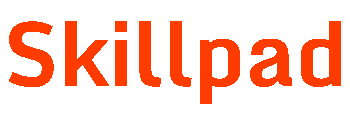Asking for a salary increase can be a nerve-wracking experience, but it’s a crucial step in advancing your career and ensuring you’re fairly compensated for your skills and contributions. Whether you’re negotiating a raise during a performance review or making a case for a higher salary when starting a new job, these 25 tips will help you navigate the process effectively.
1. Do Your Research: Before approaching your employer, research industry standards and salary benchmarks for your position and location.
2. Time It Right : Request a raise after a significant accomplishment, a successful project, or during your annual performance review.
3. Document Your Achievements : Create a record of your accomplishments, responsibilities, and any extra duties you’ve taken on.
4. Set Realistic Expectations : Be prepared for negotiation, and understand that you may not receive everything you ask for.
5. Practice Your Pitch : Practice what you’re going to say to your employer or HR, focusing on your achievements and why you deserve a raise.
6. Being confident is key : Believe in your worth and what you bring to the company.
7. Highlight Value Added : Show how your work has contributed to the company’s growth, revenue, or efficiency.
8. Be Prepared to Listen: Be open to feedback and willing to discuss your manager’s concerns or questions.
9. Keep Emotions in Check : Stay composed, even if the conversation becomes difficult or emotional.
10. Approach Your Boss First : If possible, have this conversation with your immediate supervisor before HR.
11. Understand Company Policies : Familiarise yourself with your company’s policies on salary reviews and increases.
12. Offer Solutions : Suggest how your increased salary will benefit the company, such as improved productivity or retention.
13. Practice Patience: Give your employer time to consider your request. They may need to consult with higher-ups or review budgets.
14. Be Open to Non-Monetary Benefits : Consider perks like additional vacation days, flexible hours, or professional development opportunities.
15. Dress Professionally : Dress the part when making your request; professionalism counts.
16. Be Concise : Present your case clearly and concisely; avoid unnecessary details or tangents.
17. Stay Positive : Frame your request positively, emphasising your commitment to the company.
18. Consider Benefits : Remember to include benefits, bonuses, and other compensation when discussing your package.
19. Demonstrate Growth : Show how you’ve grown and developed in your role, taking on more responsibilities over time.
20. Show Enthusiasm : Express your enthusiasm for your job and your desire to continue contributing to the company.
21. Practice Active Listening : Ensure you understand your employer’s perspective and respond thoughtfully.
22. Have a Backup Plan : Consider what you’ll do if your request is denied, such as seeking other opportunities.
23. Be Flexible : Be willing to negotiate and find middle ground in the conversation.
24. Stay Professional : Maintain professionalism throughout the negotiation, even if it doesn’t go as planned.
25. Follow Up After the discussion : follow up in writing to recap the key points and any agreed-upon actions.
Asking for a salary increase is a critical step in advocating for your worth and career growth. By preparing, staying professional, and demonstrating your value to the company, you can increase your chances of a successful negotiation. Remember that it’s not just about asking for more money, but about justly rewarding your contributions and securing your financial future.









